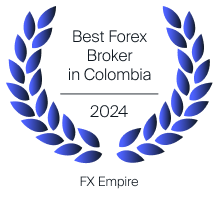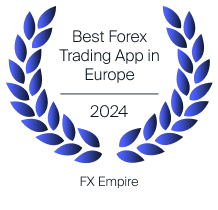Solana
 Loading...
Loading... | Instrument:SOLANA |
What is Solana?
Solana is a public, open-source decentralized blockchain that supports smart contract functionality. The project’s whitepaper was first proposed by a team led by Anatoly Yakovenko in 2017, but it was launched to the public in 2020. Solana can be likened to Ethereum (and it has, in fact, been dubbed as the ‘Ethereum Killer’) because it is both a cryptocurrency and a platform whereupon decentralized applications can be built and run. Solana was specially designed for scalability and speed. Its network can process up to 50,000 transactions per second, compared to 15 Ethereum. The platform was able to achieve this by implementing a hybrid consensus model that combines the well-known Proof of Stake (PoH) and the innovative Proof of History (PoH) models. PoS is a standard consensus model in many blockchain platforms, and it involves having participants (coin owners) validate transactions in exchange for rewards. Solana combines PoS with PoH, a novel consensus model that brings timestamps to the blockchain, thus allowing for transactions to be verified as quickly as possible. This also enables greater scalability, which consequently enhances the usability of Solana.
Speed is a major innovation for Solana because it has kept fees and congestion on the platform very low. This has attracted the development of numerous decentralized applications that range from DeFi (decentralized projects) and DEX (decentralized exchanges) to Lending Protocols, NFT Marketplaces, and Web3 Applications. The native cryptocurrency that runs on the Solana platform is SOL. SOL is used to pay for transactions as well as staking on the Solana blockchain. The Solana blockchain is maintained by Solana Labs and Solana Foundation.
Trading Crypto CFDs with AvaTrade
Cryptocurrency trading can either be done on an exchange or via a CFDs brokerage company. AvaTrade offers CFDs for crypto coins such as SOL. When trading crypto CFDs, traders do not own the underlying coins or tokens. Instead, they only speculate on their price changes. Here are some of the advantages of trading crypto CFDs:
- Safety and Convenience
Since you do not own the underlying coins or tokens, you do not need a crypto wallet to store and secure them. This makes crypto CFDs safe and convenient to trade at all times.
- Flexible Trading
Crypto CFDs allow traders to implement a wide range of strategies so as to maximize profitability in this volatile market. Traders can apply short-term trading strategies like scalping and day trading with low fees, execute unlimited short-selling trades, use limit orders such as stop losses and take profit, as well as hedge their positions. This flexibility is only possible when trading cryptocurrencies as CFDs.
- Leveraged Trading
Leverage allows traders to control much larger positions in the market by placing only a small margin of capital. Trading with leverage can multiply your profits on successful trades because profits are based on the leveraged position and not the margin capital. But leverage should be used with caution because it can lead to devastating losses when prices do not move as predicted.
Solana News – What Influences the Solana Price?
SOL has been an impressive performer in recent months. It was actually the cryptocurrency of the year in 2021, rising from 120th position to 5th position in terms of market capitalization. The coin started the year with a price of less than $2 and went on to print an all-time high of $260, before closing the year over 11,000% higher. In 2022, SOL has been in a corrective mode it trades just below $100 as of April 2022.
Here are some of the factors that have influenced its price:
- Trends of Bitcoin and Ethereum
Solana’s SOL tends to follow the directional cue provided by major cryptocurrencies, such as Bitcoin and Ethereum. Bitcoin is the primary cue provider in the crypto market. The first-ever cryptocurrency rallied in 2021 to print an all-around $70,000, inspiring a bullish sentiment in almost all altcoins, including Solana. As for Ethereum, Solana benefits from functionality and competition. Rising Ethereum prices cause an increase in transaction fees on the platform known as ‘gas.’ This leads to investors seeking alternatives that are cheaper, faster, and more functional. As the major competitor to Ethereum, Solana generally becomes the biggest beneficiary of this trend.
- Use Cases and Media Attention
Solana has built a fast and highly scalable blockchain that boasts a very high throughput of over 50,000 transactions per second. This has attracted over 1000 projects on the platform. Solana was one of the biggest beneficiaries of the explosion of NFT and DeFi projects and continues to attract the largest Web3 projects. Some of the biggest projects on Solana include Raydium, Star Atlas, Serum, Audius, and GARI Network. This success has not gone unnoticed, and the Solana price has also benefitted from increased attention from both mainstream media and social media, where the platform is being touted as the only ‘legitimate’ competitor to Ethereum.
- System Stability
The success of Solana crypto has not been without issues. The blockchain platform has had a couple of outages in recent months. The most notable one was in September 2021 when the network went offline for over 17 hours. This can inspire tension in investors, who may be worried that the platform was optimized for speed at the expense of security. The stability of the Solana platform is a major headwind for SOL’s price.
Solana Trading
Solana can be a very lucrative cryptocurrency to trade. Open an account with AvaTrade and learn about the opportunities available in cryptocurrencies and CFD trading. AvaTrade offers comprehensive educational materials as well as daily analysis reports to help traders gain relevant knowledge and skill required to trade the markets. Trade Solana to USD and other crypto CFDs with an internationally regulated broker, on advanced and flexible platforms, as well as attractive trading conditions and effective resources and tools.























